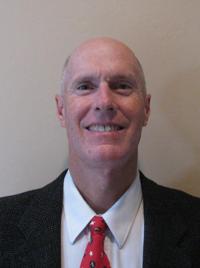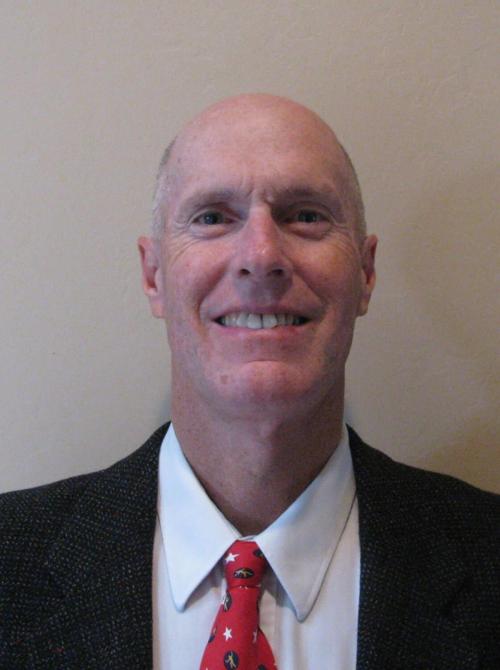Through more than 40 years in the business of college athletics, Bob Myers has been a coach, a professor, an athletic director, a dean and a Hall of Famer. Or should we say, he is a Hall of Famer.
No one in the current UA athletic department goes as far back as Myers, to 1978, when the football player from Chico State enrolled at Arizona intent on getting an advanced degree in biomechanics, studying under the acclaimed Betty Atwater, a global expert in what made high jumpers jump so high and long jumpers jump so far.
So when Arizona senior Justice Summerset won the Pac-12 high jump championship Saturday at USC — and when junior Lillian Lowe finished second in the women’s high jump finals — you could say that Myers’ mission has been a success.
Those in the UA track program have known that for decades.
"Prior to me coming to Arizona in 1987, Bob Myers and Dr. Atwater were two athletic professionals I read the most," says UA head track coach Fred Harvey. "When I got the job, it was like a kid in a candy store. He’s an amazing coach and a better person."
If you’ve lost track of Myers, it’s understandable.
After completing his advanced degrees at Arizona in 1992, he went home to Northern California to become the athletic director and Dean of Education and Human Development at Solano Community College in Rockville.
How’d he do? In 2014, Myers was inducted into the National Association of Collegiate Athletic Directors Hall of Fame, joining fellow NACDA Hall of Famers such as former Arizona athletic directors Cedric Dempsey, Jim Livengood and Dick Clausen, and Pima College’s Larry Toledo.
Myers and his wife Glorida, a UA grad, returned to Tucson in 2012. He supposedly retired. But it wasn’t long before he was back at Drachman Stadium, helping the UA’s high jumpers as he had done from 1978-92.
"I’m like a volunteer with a 40-hour a week job," Myers says with a laugh.
This season, he replaced the skilled Sheldon Blockburger as Arizona’s high jumps coach, a responsibility that isn’t taken lightly.
In the last 55 years, Arizona has produced 21 conference high jump champions, from 1968 Olympic silver medalist Ed Caruthers to NCAA Woman of the Year Tanya Hughes in 1992 to Olympic silver medalist Brigetta Barrett in 2012 and now to Summerset, a former state record holder from Mountain View High School.
The Wildcats would’ve probably swept Pac-12 championships over the weekend but defending women’s high jump champion Karla Teran withdrew with a minor injury, awaiting the NCAA Regionals next week in Texas.
It’s not inconceivable that Summerset and Teran will sweep the NCAA Championships next month; Summerset finished No. 3 at the 2017 national finals and Teran was No. 5 in 2019.
"Justice is having a special year," says Myers. "He’s dedicated himself, doing the little things it takes to jump better. He needs to get to 7-feet 5-inches to qualify for the Olympic trials, but he’s getting there. It’s encouraging."
Beyond Summerset and Teran, who is the No. 1 women’s high jumper in projections for the Mexican Olympic team, Myers is coaching sophomore Alexa Porpaczy, who is ranked No. 1 among Canadian female high jumpers, and sophomore Diana Ramos, who is No. 1 in Venezuela.
"The kids just love Bob," says former UA head track coach Dave Murray, who is a consultant to the Wildcats track program. "To get a man like Bob to come back to Tucson to coach — and as a volunteer, no less — is really fortunate."
Myers’ career hasn’t been trouble-free. On a tragic day in January 1982, he and former UA assistant coach Mike Bassoff discovered the body of Arizona head track coach Willie Williams in a storage shed at Drachman Stadium. Williams had committed suicide that morning, dying from a single gunshot wound to the head.
Williams, 41, was the first Black head coach in school history, and among the first in Division I college sports.
Murray became the head coach and soon hired Myers. Now, 39 years later, they are frequent cycling partners, track and field junkies the core. Teachers first, coaches second.
Ironically, during Myers’ years at Solano Community College, he had to eliminate the Falcons’ track and field program for financial reasons. But he persevered and overcame those issues, building a strong SCC program of 10 varsity sports before retiring and returning to Tucson.
"It’s kind of funny that in high school I was a terrible high jumper," says Myers. "But because of my biomechanics background I was able to learn and adapt to new techniques and teach it to our kids. It’s been my good fortune to have so many talented high jumpers. Sometimes I look at the record book and just shake my head."





